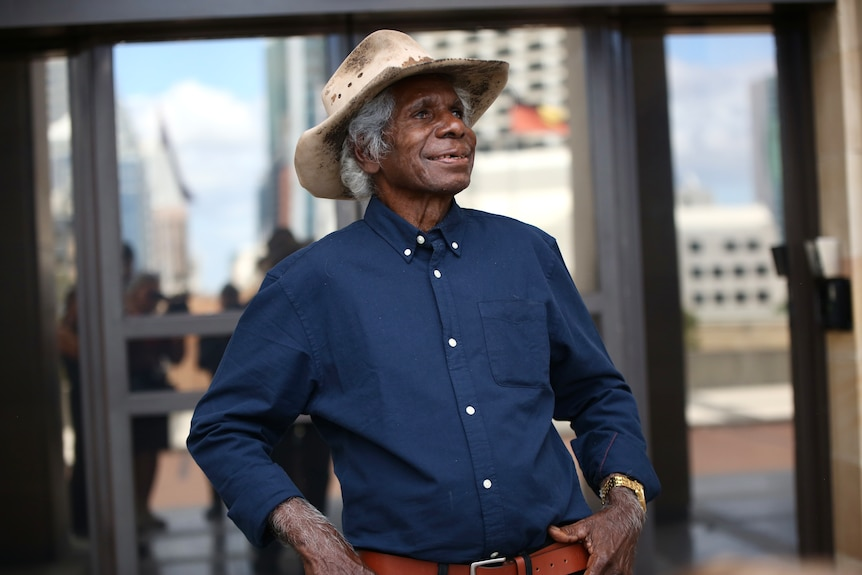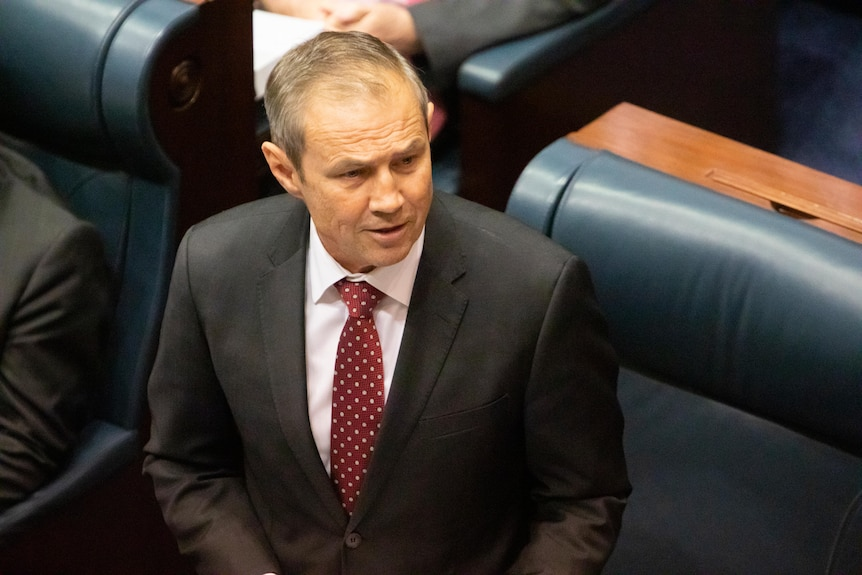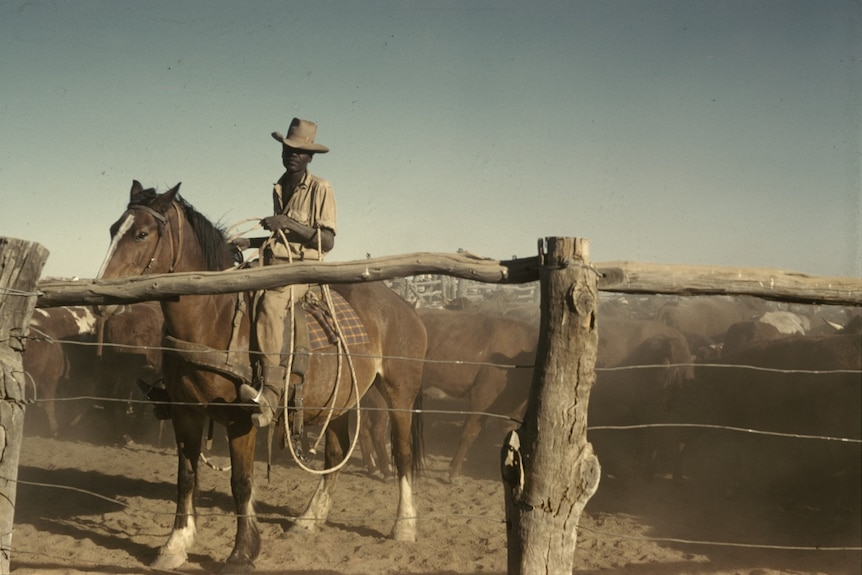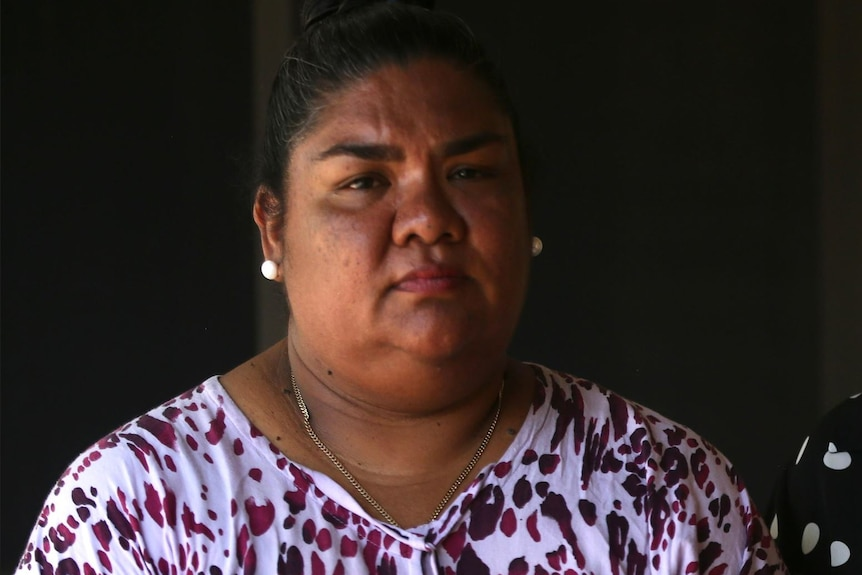
The WA premier has made an official apology in parliament on behalf of the state to Aboriginal people who worked for little or no pay.
WARNING: Aboriginal and Torres Strait Islander readers are advised this article contains images and descriptions of people who have died.
The apology has come in the wake of an agreement to settle a class action, launched by Mervyn Street, brought on behalf of Aboriginal people who were subject to discriminatory legislation and practices, and "stolen wages".
It was announced earlier this month that the WA government had agreed to settle for about $180 million in compensation and legal costs to eligible Aboriginal workers or their surviving spouses and children.
The class action and settlement related to those subject to legislation which was in effect from 1936 to 1972.
Premier Roger Cook told parliament that legislation had been introduced in the past which was "supposed to protect Aboriginal people but instead resulted in hardship and exploitation".

Mervyn Street, who launched the class action, on the steps of WA parliament after the apology.( ABC News: James Carmody )
There were controls, he said, which had an impact on where Aboriginal people could "work, travel and live".
They worked long hours and didn't get an appropriate amount of pay, or in some cases, no pay at all.
Instead, he said, "they were often paid in rations such as flour, sugar, tea and tobacco".
YOUTUBEThe WA government says the settlement of a legal claim for wages withheld from Aboriginal workers is in the spirit of reconciliation.
The "bookdown" system involved necessities bought on credit at a station store, and some people never got to see the money.
There were controls in place until 1972.
"Aboriginal men, women and children worked hard and made enormous contributions to the economic development of this state," Premier Cook said.
"But they received only a fraction of their worth."

Roger Cook issued the apology in parliament on Tuesday.(ABC News: Keane Bourke)
Mr Cook reflected on the fact that he led the Labor Party, with its origins in the union movement, which embraced "fairness, justice and equality".
Yet the mistreatment of Aboriginal workers over a period of decades was a "blight on the legacy of successive governments," and this brought "great shame".
Mr Cook went on to say that many workers had to deal with "oppressive conditions", and even the threat of violence.
Men worked 14-hour days on pastoral stations, while women worked in domestic environments, "cooking, cleaning and caring for children in homes all over Western Australia".
While staying at missions, young people worked "long hours before and after school", in laundries and on farms.
Mr Cook spoke of attempts to address the issue of stolen wages over the past 20 years.
It was in 2006 when the Commonwealth Standing Committee on Legal and Constitutional Affairs called for governments to pay adequate compensation.
Two years later, in Western Australia, the Stolen Wages Taskforce Report looked at the policies which controlled Aboriginal people.
Mr Cook told parliament it had taken too long to address the report's implications.
Select "Western Australia Top Stories" from either the ABC News homepage or the settings menu in the app.
The reparations scheme in 2012, he said, was inadequate and "excluded many workers who were impacted".
He said the government recognised the laws and policies "caused great harm and disadvantage".
"For their family members who remain, we are sorry for the hurt and loss that your loved ones suffered," he said.

Indigenous workers in WA were often paid in rations like sugar, tea and tobacco, without seeing their money. (Supplied: the State Library of WA)
"Their strong shoulders carried the weight of their families and communities.
"Their strong hands built up this state's economy.
"Their strong minds and spirits pursued justice in the decades that followed, leading to this moment and the recognition they rightfully deserved.
"To you all, we say sorry."
Member for the Kimberley Divina D'Anna told parliament the exploitation didn't happen by accident.
"Many of those atrocious laws were agreed to right here where we are standing today," she said.
She said A.O. Neville, who worked as WA's 'Chief Protector of Aborigines' from 1915 until 1936, likened the conditions on cattle stations to slavery.
"Writing in 1925, [he said] that many Aboriginal workers in Western Australia existed under a system of semi-slavery," she told parliament.

Divina D'Anna paid tribute to the contribution of Indigenous Western Australians to the cattle industry.(ABC News: James Carmody)
"The pastoral industry remains a part of the Kimberley's contemporary identity to this day and the immense contributions of Aboriginal stockmen and women must be acknowledged and celebrated.
"The reality of the history of this state is that Aboriginal people have been the backbone of the cattle industry."
Ms D'Anna paid tribute to Mervyn Street, who launched the legal action in 2020.



